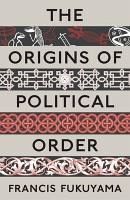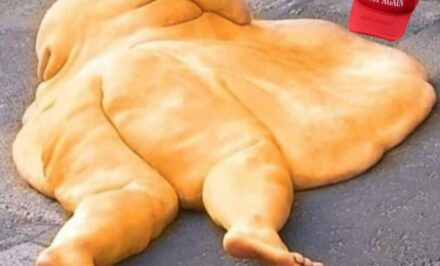 Wir denken bei Thailand automatisch an Sex-Business, Sex-Tourismus, Korruption und organisierte Kriminalität. Von außen. Christopher G. Moore lebt in dieser Gesellschaft. Heute dreht sich alles um Verbrechen, Polizeiarbeit, unterschiedliche Interessen und betrübliche Relativitäten …
Wir denken bei Thailand automatisch an Sex-Business, Sex-Tourismus, Korruption und organisierte Kriminalität. Von außen. Christopher G. Moore lebt in dieser Gesellschaft. Heute dreht sich alles um Verbrechen, Polizeiarbeit, unterschiedliche Interessen und betrübliche Relativitäten …
Psychic Justice and the Predatory Class
Three cases stand out this week in the world’s criminal justice system. One was a police raid, helicopters, cars, reporters all descending on a rural farmhouse outside Houston, Texas on a psychic’s claim of having a vision of a mass grave on the premises. The second and third cases arose in China. In one, a music student from a wealthy family was executed for stabbing a cyclist 8 times after slightly injuring her in a driving accident. In the second Chinese case, a truck driver ran over an ethnic Mongol herder, dragging him under his truck. The driver given the death sentence; his passenger life imprisonment.
We tend to think of the West as having a criminal justice system that is rational, logical and based on tangible evidence; and that the supernatural is not part of the Western system. In the East, we have the image of soothsayers, psychics, shamans and other mystics as embedded in all levels of society, including the justice system.
 How did the Houston police find themselves, based on a psychic’s prediction, digging holes around someone’s house, searching for a mass grave? It seems there were traces of blood and the smell of rotting meat. Only it turned out the reality was far less exciting. The blood came from a drunk session where someone cut their wrist, and the rotting meat from a broken down freezer.
How did the Houston police find themselves, based on a psychic’s prediction, digging holes around someone’s house, searching for a mass grave? It seems there were traces of blood and the smell of rotting meat. Only it turned out the reality was far less exciting. The blood came from a drunk session where someone cut their wrist, and the rotting meat from a broken down freezer.
Has any psychic ever having solved a single crime—using their psychic powers? The answer is zero. The police have little choice but to follow up all reports even though they may suspect the informant is a liar, stupid, mentally ill, or delusional.
The upside after the Houston case is police departments in Texas and elsewhere—the Internet has spread the image of ‘egg-faced’ Houston cops across the web—will likely mean that the next psychic who phones with reports of dead bodies will have a hard time convincing the police to fire up the helicopters and swoop in on the crime site.
It doesn’t take a psychic to predict that the rich and connected are dealt with differently than members of the working class when they have a run in with the law. A basic premise of criminal justice in any society is a central state must contain the predatory class. A state that fails or refuses to do so quickly loses legitimacy, citizens take to the streets, and unrest and violence rolls out faster than tanks from third world barracks.
The problem is a conflict of interest. This occurs due to the fair amount of overlap between the predatory class and the elites who are the politicians who exert pressure on other institutions including the police and courts. No doubt we all know individuals who are not predators by inclination but find that their success aligns their interest with the predator class. Predators, as a class, are rich, connected, powerful and influential. Predators are among the most successful rent-seekers, monopolists, cartel members, and politicians orbit around them like the earth revolves around the sun. And for much the same reason: the pull of gravity. In the case of predators, the gravity is money.
Predators, as a class, wish to live above the law secluded in their private Valhalla secure in the knowledge their wealth protects them and grants them virtual immunity. When a son or daughter of a member of the predatory class breaks the law, the central question is whether the state authorities will dish out punishment or protect such a person.
When Chinese university music student Yao Jiaxin drove into Zhang Miao, who was riding a bicycle, was slightly injured. Yao, described as the offspring from “second-generation wealth,” believed that Zhang cause trouble over the issue of compensation. Rather than facing the prospect of such a negotiation, he stabbed her eight times. Even though he turned himself into the authorities, admitted the crime, and his motive for killing the young woman, the People’s Court sentenced him to death. The judge called Yao Jiaxin’s motive for the murder despicable.
This is a variation of the Thai proverb to kill the chicken to scare the monkey. Rather than allow a child from the elite to murder a poor cyclist because she might cause him trouble over compensation sends a loud and clear message to the elites: Don’t think that your status, wealth and privilege grants you an automatic entitlement to immunity. There are limits. Yao Jiaxin just crossed on such limit. The vast bulk of the population in China will be reassured with the execution of Yao Jiaxin, that the central state will not tolerate law breaking by the elites.
 Whether this is a precedent, a one-shot (no pun intended) warning, or larger political statement with ramifications in other spheres, remains to be seen. As Francis Fukuyama’s The Origin of the Political Order suggests, the Chinese have an underdeveloped rule of law based system. The execution of Yao Jiaxin may be an indication the Chinese authorities wish to strength the rule of law.
Whether this is a precedent, a one-shot (no pun intended) warning, or larger political statement with ramifications in other spheres, remains to be seen. As Francis Fukuyama’s The Origin of the Political Order suggests, the Chinese have an underdeveloped rule of law based system. The execution of Yao Jiaxin may be an indication the Chinese authorities wish to strength the rule of law.
The elites might also belong to the ethnic group with the power to oppress a smaller ethnic group. A good example of the use of the rule of law to diffuse bad feelings running hot between the dominant Han and Mongol minority also occurred in China. Li Lindong was given the death sentence after a six-hour trial at the Intermediate People’s Court in the region’s Xilingol League. His passenger (another driver) Lu Xiangdong, who rode in the cab of Li’s truck when he drove over the herder, found himself convicted of homicide and received a life sentence.
The political circumstances surrounding the Mongol herder’s death seem to have been a significant factor. The dead man had been involved in a protest at the time he was hit and dragged 145 meters. His death along with another Mongol killed in a confrontation between locals and Chinese coal miners resulted in demonstrations in northern Mongol pastureland. Herders and students went into the streets with demands for justice and cultural protection for their traditions and lifestyle.
Neither the circumstances nor the severity of the sentences handed out to the truck driver and his passenger are found in a normal criminal case. The political dimension—ethnic conflict, cultural oppression, and demonstrations—is significant, making it difficult to treat the prosecution and sentence handed out in isolation. And here’s where the rule of law should come into play. This looks like an outcome in a system where the rule of law yields to political considerations. In such a politicized system, even the Predatory Class may not receive protection, and arguably would be better off under a rule of law system separate from the political decision-making. Using the criminal justice system to advance a political agenda is incompatible with the Western notion of rule of law. It is one thing to rein in the elites and their children as in the case of university music student Yao Jiaxin. But it violates the rule of law to prosecute and sentence individuals from the dominant ethnic group to relieve the political pressure created by another competing minority ethnic group.
From Texas to China we can confirm our bias that criminal justice systems are flawed. That is of course a given. All institutions have weaknesses, gaps, and inconsistencies because they are made and run by us. When the wheels come off the wagon is when officials in charge of the criminal justice look to the supernatural or the prevailing political winds before making a judgment. Justice without an underpinning of fairness, equality, impartiality, independence and reliability becomes a punch line on Jon Steward’s Daily Show or a cause to take to the streets in protest. The elites must be fenced in or they will eat everything including what is on your plate. It is here the predators lurk.
At the same time, the political class must leave the criminal justice system to work through the evidence without interference or favor. This is a tall order. Many countries have a culture of political interference. We live in an ideologically divided world, one where everyone wants justice, and many states fail or refuse to administer justice in a manner that is judged as equal and fair by a large segment of the population. Around the world the TV news brings you eyewitness accounts of the consequences in places the justice system has broken down. These accounts demonstrate that the predators understand the collapse of a legitimate state means there is no longer anyone to stop them.
Christopher G. Moore
Dieser Beitrag erschien am 10. Juni auf unserer Partner-Site
Bangkok Noir
The Cultural Detective. Kindle/Amazon.UK and Kindle/Amazon.USA. His lastest Vincent Calvino novel, 12th in the series, is titled 9 Gold Bullets and is available as an ebook on Kindle.
Moores Podcast
Die Vincent Calvino-Romane.
Der Autor beim Unionsverlag, hier.
Zu Christopher G. Moores Website.











